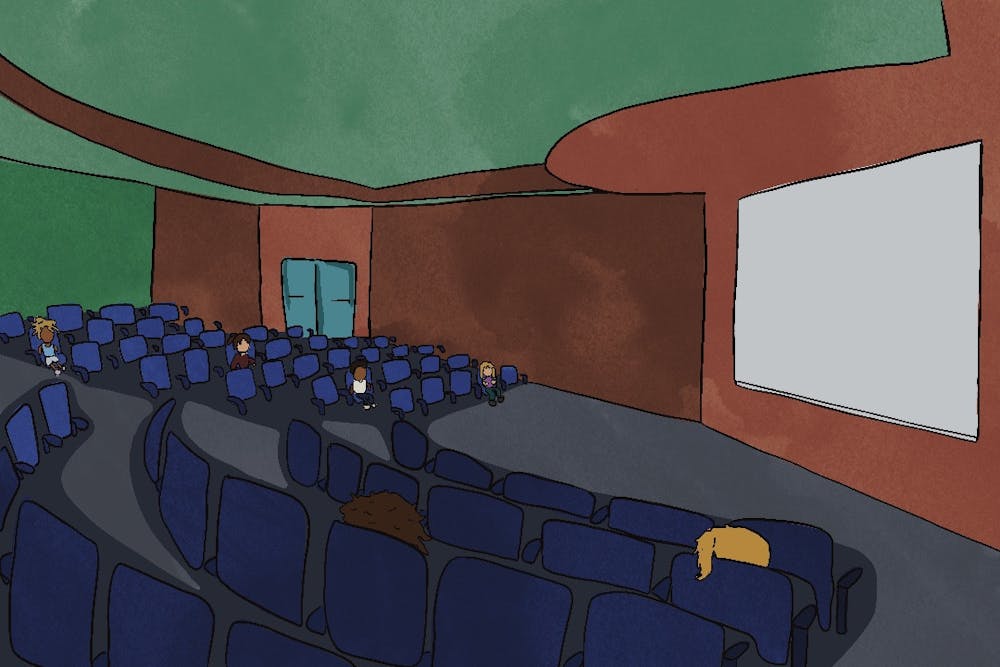These are the classes that make every STEM student question how many hours they can stare at the same math problem.
While "weed-out" classes across the academic world are famous for their rigor, denial of their underlying issues can take them from an intellectual challenge to an academic nightmare for students. ASU needs to acknowledge that this isn't okay and that students deserve more support.
Cameron McConnell, a senior studying computer science and a tutor at the Engineering Tutoring Center, said that weed-out classes force students to consider if they actually want to stay in their major.
"They're a big change of pace, because a lot of the previous classes are very practical," Mcconnell said. "A lot of students are just thrown off, and they're just like, why am I doing this?"
For computer science, McConnell identified the three weed-out classes known by many STEM students as “the trifecta." This trend continues in mechanical engineering studies, where the thermodynamics and dynamics classes are common weed-outs.
"Dynamics was like ... the boss of mechanical engineering," Jayden McGee, a senior studying mechanical engineering, said. "An average dynamics homework would take five or six hours. That was gatekeeping me (from the major)."
McConnell said that the weed-outs were "a very hard period of adapting" for him, and he sees how much the students who come into the tutoring center struggle as well.
"Seeing them go through it, it's eye opening, you'll see that, yeah, these students just aren't really well adapted to it, or just are struggling to gain a lot of the concepts," he said.
McConnell was surprised by the lack of presence of students in the tutoring center. This small turnout seems counterintuitive because, logically, students should be utilizing resources that are free and accessible to them to pass weed-out classes.
It turns out that the effects of the weed-outs ripple to the mindsets of the students. Since weed-outs are so inhospitable for learning, students prioritize passing the class over genuinely retaining the material. Then, those same students are tasked with tutoring others in these subjects.
"There's no way I'm going to ask some poor soul for some help on dynamics," McGee said. "You take the class, you wipe it from your memory, unless you're a PhD student. The only way to get help, really, is to go to office hours, where (professors) basically just guide you through it anyway."
Weed-out classes also require teaching assistant-led recitation sessions for groups of between 20 and 25 students, meant to help students practice the material. Although this aims to help students get individualized help, this isn't actually true, since the professor often isn't even in the room and the TA could be too overwhelmed with questions to help people individually.
McConnell also said the manageability of weed-out classes depends on what professor teaches the course.
"I think that really makes or breaks it," he said. "There's some really good professors in the classes that really get you excited about the course, and then there's also some professors that just make it a lot harder than it needs to be."
However, students don't always get the option to pick the professors they'll have.
For thermodynamics and dynamics in the mechanical engineering track, the professors typically aren’t listed when students are registering for classes.
"Sometimes you'll see the professor listed on there but a lot of the time, I just have to hope I get a good professor," McGee said. "I don't want to spend more energy or time than I have to, (rather than) just knowing the professor and knowing that I'm going to be supported as a student."
Valana Wells, the undergraduate program chair for mechanical and aerospace engineering, did not respond to why the names of professors aren't listed for weed-out classes. Wells actually denied the existence of weed-outs altogether.
"Mechanical engineering does not have ‘weed out’ classes," Wells said in an email. "We realize that engineering is difficult, and we provide multiple resources to help students understand course material so that they can be successful throughout our program."
Denying the problem entirely, especially when it is a phenomenon experienced across most STEM programs at ASU, will not help anyone. Weed-out classes in their current nightmarish form wouldn't even exist if the University provided enough support for its struggling students.
Making it easier for STEM students to choose professors is the first step towards helping them succeed in these high-level classes. These classes are foundational to students' careers, and should center student learning as an exciting goal rather than excusing apathy to students as "rigor."
Until this is addressed, there will be students who fail these classes or who switch studies entirely, simply because their experience was more of a professor lottery than an academic challenge.
Edited by Mia Osmonbekov, Sadie Buggle and Shane Brennan
Reach the reporter at asgrazia@asu.edu and follow @emphasisonno on X.
Like The State Press on Facebook and follow @statepress on X.
Editor's note: The opinions presented in this column are the author's and do not imply any endorsement from The State Press or its editors.
Want to join the conversation? Send an email to opiniondesk.statepress@gmail.com. Keep letters under 500 words and be sure to include your university affiliation. Anonymity will not be granted.
River is a senior studying english and mechanical engineering. This is their fourth semester with The State Press.




